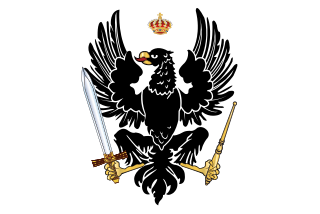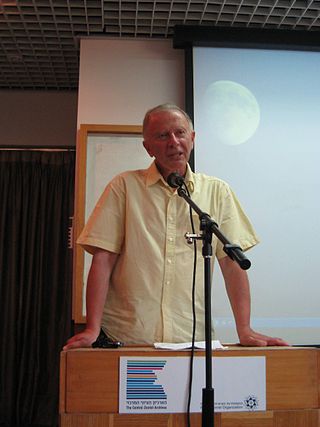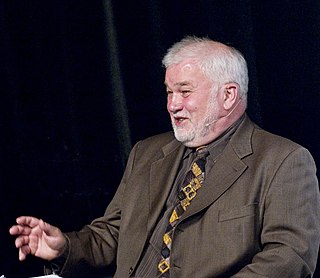Related Research Articles
Antisemitism is hostility to, prejudice towards, or discrimination against Jews. A person who holds such positions is called an antisemite. Antisemitism is considered to be a form of racism.

The German Empire, also referred to as Imperial Germany, the Second Reich, as well as simply Germany, was the period of the German Reich from the unification of Germany in 1871 until the November Revolution in 1918, when the German Reich changed its form of government from a monarchy to a republic.

A pogrom is a violent riot incited with the aim of massacring or expelling an ethnic or religious group, particularly Jews. The term entered the English language from Russian to describe 19th- and 20th-century attacks on Jews in the Russian Empire. Similar attacks against Jews which also occurred at other times and places retrospectively became known as pogroms. Sometimes the word is used to describe publicly sanctioned purgative attacks against non-Jewish groups. The characteristics of a pogrom vary widely, depending on the specific incident, at times leading to, or culminating in, massacres.

The Junkers were members of the landed nobility in Prussia. They owned great estates that were maintained and worked by peasants with few rights. These estates often lay in the countryside outside of major cities or towns. They were an important factor in Prussia and, after 1871, in German military, political and diplomatic leadership. The most famous Junker was Chancellor Otto von Bismarck. Bismarck held power in Germany from 1871 to 1890 as Chancellor of the German Empire. He was removed from power by Kaiser Wilhelm II.

Prussia was a German state on the southeast coast of the Baltic Sea. It formed the German Empire under Prussian rule when it united the German states in 1871. It was de facto dissolved by an emergency decree transferring powers of the Prussian government to German Chancellor Franz von Papen in 1932 and de jure by an Allied decree in 1947. For centuries, the House of Hohenzollern ruled Prussia, expanding its size with the Prussian Army. Prussia, with its capital at Königsberg and then, when it became the Kingdom of Prussia in 1701, Berlin, decisively shaped the history of Germany.

The Treaty of Labiau was a treaty signed between Frederick William I, Elector of Brandenburg and Charles X Gustav of Sweden on 10 November (O.S.) / 20 November (N.S.) 1656 in Labiau. With several concessions, the most important being the elevation of Frederick William I from a Swedish vassal to a full sovereign in the Duchy of Prussia and in Ermland, Charles X Gustav strove to "buy Frederick William's support" in the ongoing Second Northern War.

Robert Solomon Wistrich was the Erich Neuberger Professor of European and Jewish history at the Hebrew University of Jerusalem, and the head of the University's Vidal Sassoon International Center for the Study of Antisemitism. Wistrich considered antisemitism "the longest hatred" and viewed Anti-Zionism as its latest incarnation. According to Scott Ury, "More than any other scholar, Wistrich has helped integrate traditional Zionist interpretations of Jewish history, society, and fate into the study of antisemitism." Other researchers have reproduced much of his work without questioning its founding assumptions.

Professor Emeritus Jürgen Kocka is a German historian.

European universities date from the founding of the University of Bologna in 1088 or the University of Paris. The original medieval universities arose from the Roman Catholic Church schools. Their purposes included training professionals, scientific investigation, improving society, and teaching critical thinking and research. External influences, such as Renaissance humanism, the discovery of the New World (1492), the Protestant Reformation (1517), the Age of Enlightenment, and the recurrence of political revolution, enhanced the importance of human rights and international law in the university curricula.

Sir Christopher Munro Clark is an Australian historian living in the United Kingdom and Germany. He is the twenty-second Regius Professor of History at the University of Cambridge. In 2015, he was knighted for his services to Anglo-German relations.

The Journal of Modern History is a quarterly peer-reviewed academic journal covering European intellectual, political, and cultural history, published by the University of Chicago Press. Established in 1929, the journal covers events from approximately 1500 to the present, with a geographical scope extending from the United Kingdom through the European continent, including Russia and the Balkans.

The Prussian Partition, or Prussian Poland, is the former territories of the Polish–Lithuanian Commonwealth acquired during the Partitions of Poland, in the late 18th century by the Kingdom of Prussia. The Prussian acquisition amounted to 141,400 km2 of land constituting formerly western territory of the Commonwealth. The first partitioning led by imperial Russia with Prussian participation took place in 1772; the second in 1793, and the third in 1795, resulting in Poland's elimination as a state for the next 123 years.
Karin Friedrich is a German historian, a professor in history at the University of Aberdeen King's College.

Sidney Bradshaw Fay was an American historian, whose examination of the causes of World War I, The Origins of the World War remains a classic study. In this book, which won him the 1928 George Louis Beer Prize of the American Historical Association, Fay argued that Germany was too readily blamed for the war and that a great deal of the responsibility instead rested with the Allies, especially Russia and Serbia. His stance is supported by several modern scholars, such as Christopher Clark, but it remains controversial.
Jan Ellen Goldstein is an American intellectual historian of Modern Europe. She is the Norman and Edna Freehling Professor of History at the University of Chicago, and co-editor of the Journal of Modern History.

The Lwów pogrom was a pogrom perpetrated by Polish soldiers and civilians against the Jewish population of the city of Lwów. It happened on 21–23 November 1918, during the Polish–Ukrainian War that followed World War I.
Mark Bassin is a geographer and specialist on Russian and German geopolitics. He is currently employed as a Professor in historical and contemporary studies at Södertörn University.
Racism in Poland in the 20th and 21st centuries has been the subject of significant inquiry. While ethnic minorities made up a more significant proportion of the country's population from the founding of the Polish state through the Second Polish Republic, 21st century government statistics have shown 94% or more of the population self-reports as ethnically Polish.

Rebekka Habermas is a German historian, professor of modern history at the University of Göttingen, in Germany. Habermas has made substantial contributions to German social and cultural history of the 19th century.
This is a select bibliography of English language books and journal articles about the history of Poland. A brief selection of English translations of primary sources is included. Book entries have references to journal articles and reviews about them when helpful. Additional bibliographies can be found in many of the book-length works listed below; see Further Reading for several book and chapter-length bibliographies. The External Links section contains entries for publicly available select bibliographies from universities and national libraries. This bibliography specifically excludes non-history related works and self-published books.
References
- ↑ The Chester Penn Higby Prize for 2012, The Journal of Modern History, Vol. 85, No. 1 (March 2013), pp. v-ix